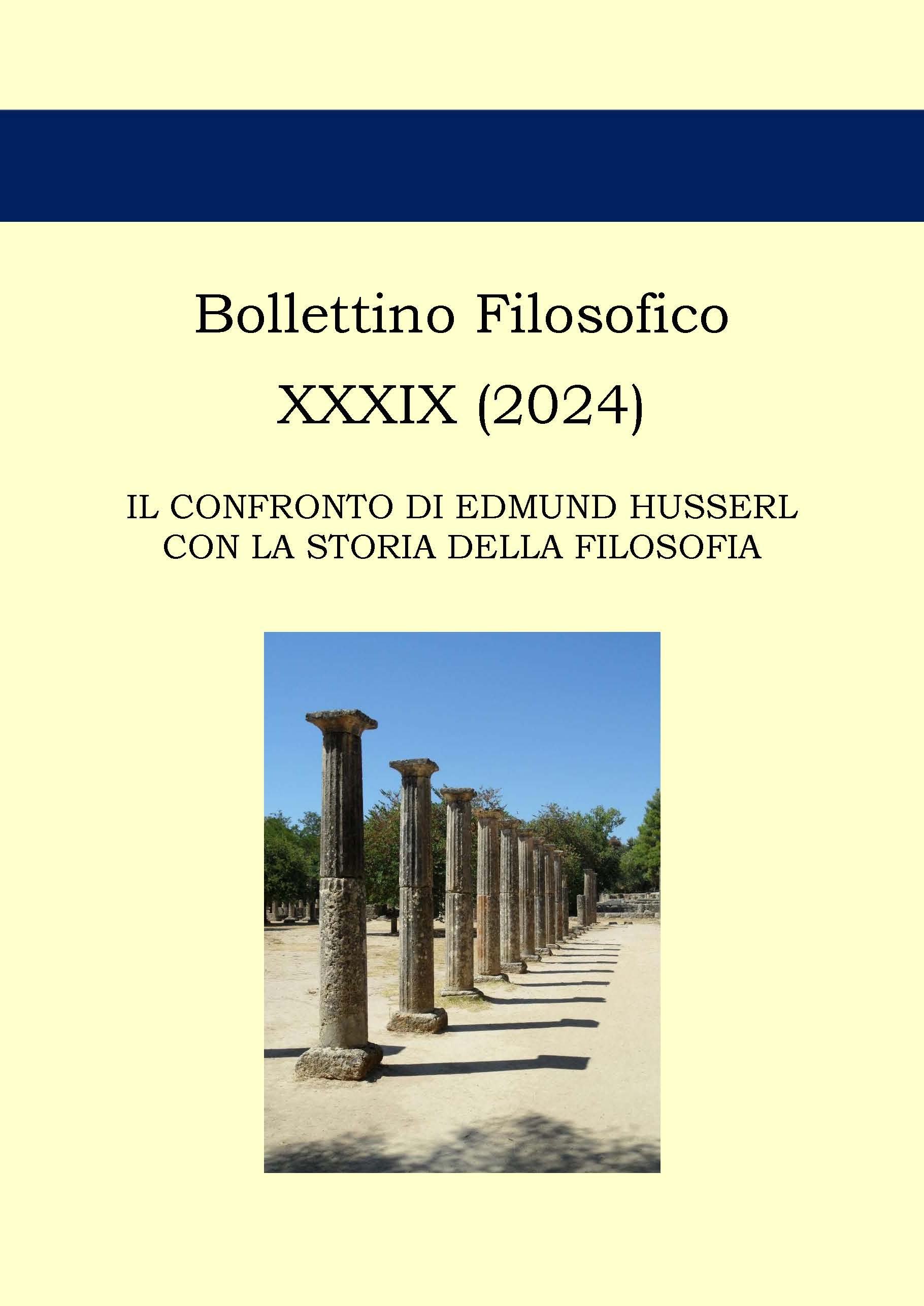Husserl and the History of Logic
DOI:
https://doi.org/10.6093/1593-7178/11435Abstract
The essay aims to examine the role that the history of logic, in its different versions, has played in Husserlian thought. The essay consists of five paragraphs. In the first, I will go back over some preparatory material to the 1890-91 review of Schröder, in which the role of Viète and his specious algebra is mentioned for the first time, and the 1895 lectures on the history of contemporary logic. In the second, I will go back to the 1887-88 manuscripts on the history and philosophy of mathematics (in which Kant and, above all, Hume are discussed), then follow their development in 1896, when logic as a theoretical discipline is included, and in 1908, where an early reference to the Stoic theory of lektòn appears. In the third section, I will address the connection between the 1913 reduction of logic with the historical-critical analysis of the apophantic-formal analytic of 1923-24 and the distinction between rationalisation, comprehension and logification of the same years, through which the problem of the ideal genesis of the idea of rigorous science is posed. In section four, however, I will address the brief history of logic that Husserl composes in 1929, within Formal and Transcendental Logic, in which the link between Stoics and Viète, i.e. between symbolic knowledge and algebra, is now explicit, and in which the historical problem of logic is intimately connected to that of rationality as a praxis of responsibility and control, and the link between the documentation of the sciences and the creation of communities professionally concerned with truth is evident. Finally, in the conclusions, I will try to show how and why, in Crisis, the order of historical prominence goes from physical geometry to modern logic, and not vice versa.
Keywords: Algebra of Logic, History of Logic, Mathematical Logic, Phenomenological Logic
Downloads
Downloads
Published
How to Cite
Issue
Section
License
The author retains the copyright of his work whilst granting anyone the possibility “to reproduce, distribute, publicly communicate, publicly exhibit, display, perform and recite the work”, provided that the author and the title of the journal are cited correctly. When submitting the text for publication the author is furthermore required to declare that the contents and the structure of the work are original and that it does not by any means compromise the rights of third parties nor the obligations connected to the safeguard of the moral and economic rights of other authors or other right holders, both for texts, images, photographs, tables, as well as for other parts which compose the contribution. The author furthermore declares that he/she is conscious of the sanctions prescribed by the penal code and by the Italian Criminal and Special Laws for false documents and the use false documents, and that therefore Bollettino Filosofico is not liable to responsibilities of any nature, civil, administrative or penal, and that the author agrees to indemnify and hold Bollettino Filosofico harmless from all requests and claims by third parties.

